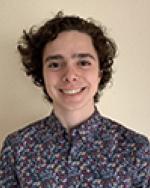
Maurizio Marcotulli, a civil engineering major pursuing a BDP certificate in Environment & Sustainability, completed an independent research project where he looked at the applicability of small modular reactors in Latin America. His goal was to see whether there were systemic reasons that small modular reactors could compete on more even grounds with the current popular hydroelectric energy in the region.
"The most rewarding aspect of this experience was how humbling it was. In many ways, I considered myself well informed about most energy sources, as it is a passion of mine, but when I was fully immersed into the world of nuclear energy, I realized that I was naive and out of my element. There were many things considered common knowledge that I had to learn as a foundation to even begin my research, but once I finally got going it was all the more rewarding."
Title of Project
The Applicability of Small Modular Reactors in Latin America
Please describe your research project and how you came up with the idea. Please also share what you learned about your research topic through this Connecting Experience.
My research project was to analyze the benefits of applying small modular reactors in Latin America. My goal was to see whether there were systemic reasons that small modular reactors could compete on more even grounds with the currently popular hydroelectric energy in the region. I came up with the idea because I’ve always believed that energy supplies work like an ecosystem, and I thought that nuclear energy could fill a niche. What I learned was that different designs are key for success.
What has been the most rewarding aspect of your Connecting Experience so far?
The most rewarding aspect of this experience was how humbling it was. In many ways, I considered myself well informed about most energy sources, as it is a passion of mine, but when I was fully immersed in the world of nuclear energy, I realized that I was naive and out of my element. There were many things considered common knowledge that I had to learn as a foundation to even begin my research, but once I finally got going it was all the more rewarding.
In what ways has this Connecting Experience shaped your plans for the future?
Sustainability is a rising field, but it is still unclear in many ways how it will manifest as a job market, so I’ve always been unsure of what my future would be. Fortunately, having the opportunity to fully immerse myself in this field, I’ve grown an appreciation for energy systems as a whole, and I believe that there is a strong need for a systemic and sustainable analysis of our energy systems in the future. I now consider working as an engineer in the energy industry as a far more attractive option.
Discuss the relationship that you had with your faculty mentor(s) and how (s)he helped you during this Connecting Experience.
Working in the UT RadLab was one of the best things that could have happened for my research. In the times of COVID-19 it was all the more difficult to find professionals willing to help and guide my knowledge, but having regular access to some of the brightest minds in the field was a massive help. As a civil engineer I struggled to understand many aspects of nuclear energy, but my mentor, Dr. Haas, always helped me interpret the facts I read in the correct way.

